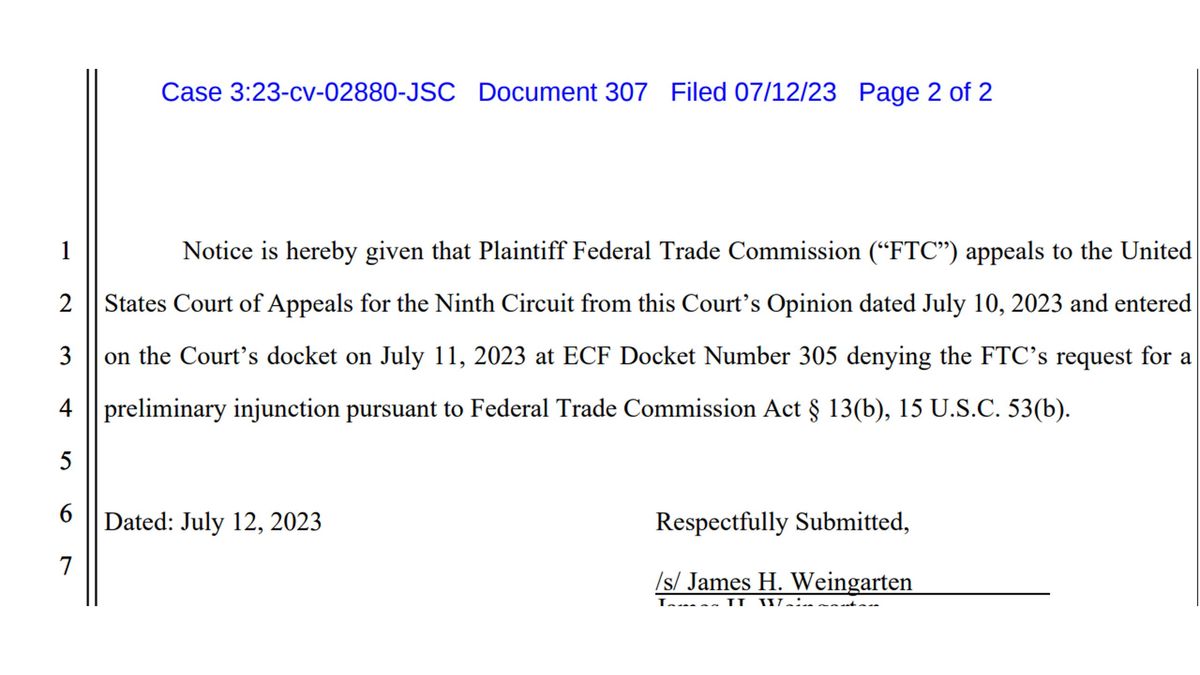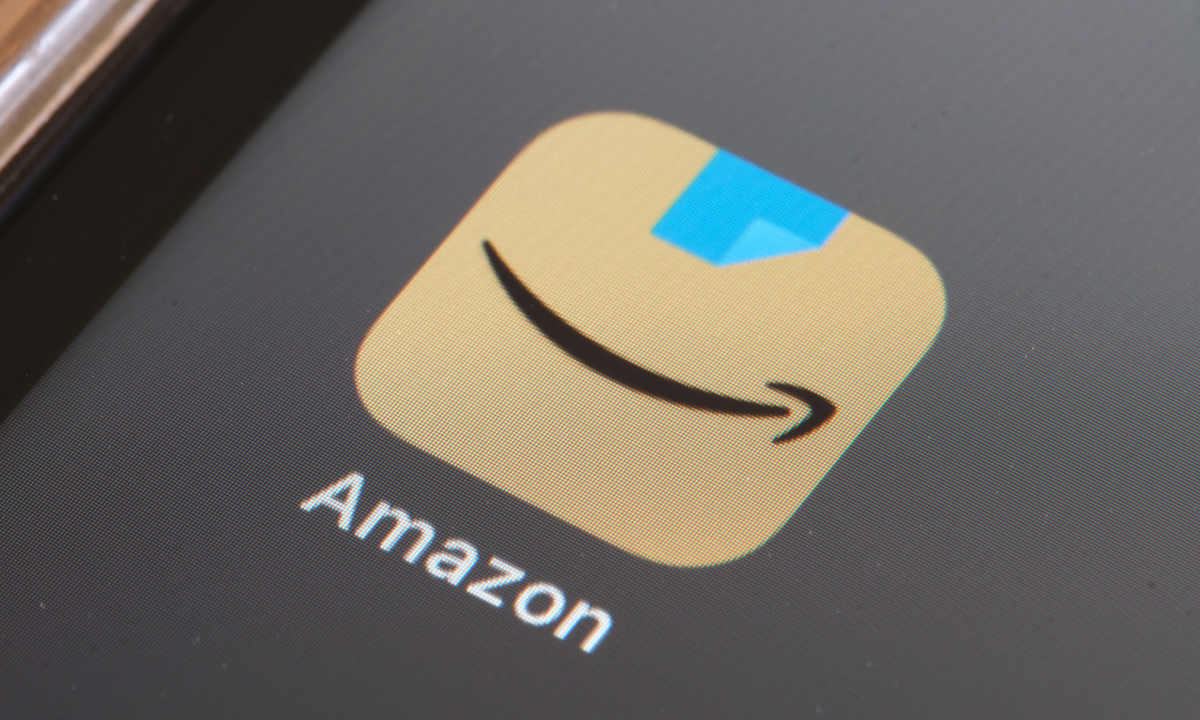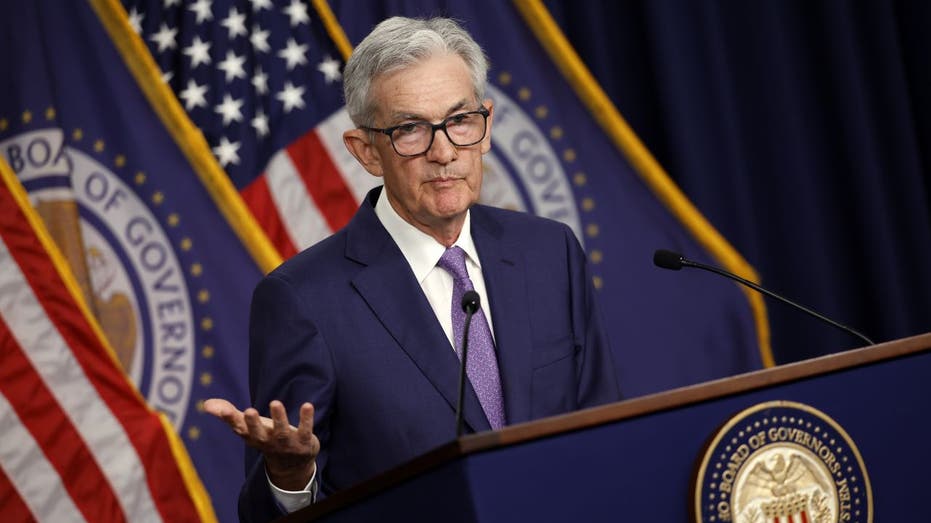FTC To Appeal Microsoft-Activision Merger Ruling

Table of Contents
The FTC's Arguments Against the Merger
The FTC's primary concern centers around the potential for anti-competitive practices if Microsoft successfully acquires Activision Blizzard. This fear stems from the sheer size and influence of both companies, particularly Microsoft's potential to leverage its acquisition to dominate the market.
Concerns about Anti-Competitive Practices
The FTC argues that the merger could significantly reduce competition within the gaming industry, leading to several detrimental effects for gamers and developers alike.
- Reduced competition among game consoles: Microsoft could potentially leverage its ownership of Activision Blizzard's titles, like Call of Duty, to make its Xbox console more attractive than competitors like PlayStation, ultimately harming competition.
- Higher prices for gamers: A lack of competition could result in increased prices for games and potentially even console hardware.
- Limited game availability on competing platforms: Microsoft could restrict the availability of popular Activision Blizzard games, like Call of Duty, on competing platforms, giving Xbox a significant advantage.
- Stifling of innovation within the gaming industry: A lack of competition could stifle innovation as Microsoft might have less incentive to improve its offerings.
The Role of Call of Duty in the FTC's Case
The immensely popular Call of Duty franchise lies at the heart of the FTC's argument. Call of Duty's massive player base and consistent market dominance make it a crucial asset in the gaming world. The FTC fears that Microsoft could use Call of Duty as a bargaining chip, forcing competitors to accept unfavorable deals or potentially excluding them from the market entirely.
- Call of Duty's immense popularity and market share significantly influence the console gaming market.
- Restricting Call of Duty to Xbox consoles could severely damage competitors' market positions.
- The FTC believes that Microsoft could use Call of Duty to leverage its market power and eliminate competition.
Microsoft's Response to the FTC Appeal
Microsoft has actively defended the merger, arguing that it will benefit gamers and the industry as a whole. They have attempted to alleviate the FTC's concerns through various concessions.
Microsoft's Defense of the Merger
Microsoft maintains that the acquisition will foster competition and innovation, not stifle it. They have attempted to counter the FTC’s arguments by offering various concessions, including long-term commitments to keep Call of Duty available on other platforms like PlayStation.
- Microsoft has pledged to keep Call of Duty available on PlayStation for a period of 10 years, a significant concession aimed at addressing the FTC’s antitrust concerns.
- They argue that the merger will allow them to expand access to their games and services, benefiting consumers.
- Microsoft asserts the deal will drive innovation and improve the overall gaming experience.
Potential Impact on Microsoft's Business Strategy
A failed appeal could significantly impact Microsoft's future acquisitions and its overall strategy within the gaming sector. It could set a precedent that makes future acquisitions more difficult.
- A reversal of the initial ruling could hinder Microsoft's future growth ambitions in the gaming industry.
- It could discourage other tech giants from pursuing similar large-scale acquisitions.
- The outcome will significantly shape the future landscape of mergers and acquisitions in the gaming market.
The Appeal Process and Potential Outcomes
The FTC's appeal will follow a specific legal process, involving various stages and timelines. The outcome is uncertain, with legal experts offering varied predictions.
Timeline and Legal Procedures
The appeal process is expected to involve several stages, including filings, hearings, and a final decision by the court. This process could take months, even years to conclude.
- The FTC will need to submit its detailed legal arguments to the appellate court.
- Microsoft will have the opportunity to respond to the FTC's arguments.
- The court will ultimately decide whether to uphold or overturn the original ruling.
Predictions and Expert Opinions
Legal experts and industry analysts offer diverse opinions regarding the likelihood of a successful appeal. Some predict an affirmation of the initial ruling, while others anticipate a reversal. This uncertainty underlines the complexity of the legal battle.
- Several legal experts believe the FTC has a strong case based on the potential anti-competitive implications.
- Others argue Microsoft's concessions may be sufficient to address the FTC's concerns.
- The final decision will depend heavily on the court's interpretation of antitrust laws.
Impact on the Gaming Industry and Consumers
The FTC's appeal carries significant implications for the gaming industry and consumers, influencing game prices, availability, and long-term innovation.
Effects on Game Prices and Availability
The outcome of the appeal could affect the prices of games, particularly Activision Blizzard titles, and their availability on different platforms.
- If the merger is blocked, prices might remain relatively stable, but competition could be constrained.
- If the merger proceeds, there’s a risk of increased prices or limited access to certain titles on competing consoles.
Long-Term Implications for Game Development and Competition
The long-term effects extend beyond immediate price and availability changes, affecting the very fabric of competition and innovation within the gaming market.
- A blocked merger could foster more competition and encourage innovation among smaller game studios.
- A successful merger could lead to a more consolidated market, potentially slowing innovation and risking a reduced selection for gamers.
Conclusion: The Future of the Microsoft-Activision Merger Remains Uncertain
The FTC's appeal against the Microsoft-Activision merger represents a pivotal moment for the gaming industry. The arguments presented, the potential outcomes, and the impact on consumers and developers are all significant. The future of this acquisition remains uncertain, highlighting the ongoing importance of this legal battle. Stay informed about further developments in the Microsoft-Activision merger appeal and its implications for the future of gaming. Keep an eye on reputable news sources for updates on this evolving situation and the ongoing discussion regarding the FTC’s antitrust concerns and Microsoft’s response.

Featured Posts
-
 Choosing A 77 Inch Tv My Lg C3 Oled Experience
Apr 24, 2025
Choosing A 77 Inch Tv My Lg C3 Oled Experience
Apr 24, 2025 -
 Regulatory Scrutiny And Doge Examining The Epas Actions Against Tesla And Space X
Apr 24, 2025
Regulatory Scrutiny And Doge Examining The Epas Actions Against Tesla And Space X
Apr 24, 2025 -
 Understanding Indias Bull Market A Deep Dive Into The Niftys Performance
Apr 24, 2025
Understanding Indias Bull Market A Deep Dive Into The Niftys Performance
Apr 24, 2025 -
 Recent Gains In Hong Kong Analyzing The Rally In Chinese Stocks
Apr 24, 2025
Recent Gains In Hong Kong Analyzing The Rally In Chinese Stocks
Apr 24, 2025 -
 Trump Reassures Markets No Plans To Dismiss Fed Chair Powell
Apr 24, 2025
Trump Reassures Markets No Plans To Dismiss Fed Chair Powell
Apr 24, 2025
